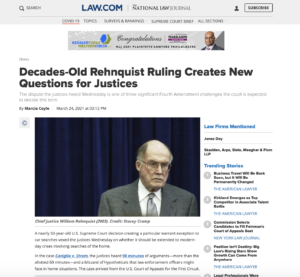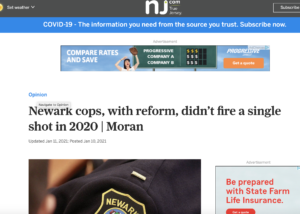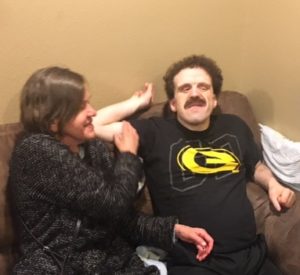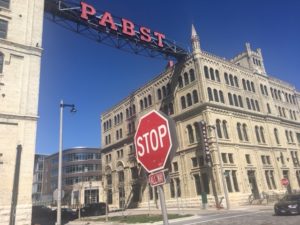Mondays with Mike: Scene from an Italian restaurant
May 10, 2021 • 6 Comments • Posted in blindness, Mike Knezovich, Mondays with Mike, parenting a child with special needsAwhile back I posted about receiving and giving soup as a gift. A few weeks ago, the company we received and ordered from, Spoonful of Comfort, sent me an email—nothing unusual, as I had opted into their promotional emails. What was unusual was the subject—it wasn’t a special offer, it was an opportunity to opt out of Mother’s Day-themed emails.
The message was pretty thoughtful, noting there are any number of reasons that a person night not want to think about or hear about or participate in Mother’s Day festivities.
Beth and I well understand complicated feelings around celebrations like Mother’s Day and, for that matter, Father’s Day. Very early on, they were bittersweet days because they reminded us that parenting Gus wasn’t anything like the parenting experience of our contemporaries who had children–or the experience we’d imagined. We have always loved Gus as much as anyone loves their children. But that’s where the similarity ends.
Rather than get morose on Mother’s Day, Beth and I made a pact: We’d use the day to celebrate having made it one more year—Beth, me and Gus—as a family. Given that Gus was given a 50-50 chance of surviving his first night on earth, each year is no small feat. Given that he was born just a year after Beth lost her eyesight and that she was fighting to find her own footing, each year was and is quite a feat. She’s been one tough mutha to help raise a severely disabled child while adapting to blindness herself.
So this year we splurged and had a leisurely, lavish fixed-price meal at our favorite restaurant, Sofi. It’s a cozy, rustic northern-Italian focused place that is conveniently located just outside our building entrance. Our neighborhood businesses, like all local small businesses, suffered mightily this past year. There was the pandemic, yes, but there was looting as well. The looting shuttered one beloved business for good. Others had to close temporarily to restock and repair.
We and other neighbors have held our breath, hoping against hope that Sofi would not fold. Fantastic and genuine food, old-world service, and lots of Italian spoken—it hearkens me back to Sunday afternoon meals at my Italian grandparents’ house.
We didn’t want to lose Sofi, so during the lockdowns we ordered take-out and bought gift cards. When Sofi put up a sidewalk tent this past winter Beth and I bundled up and ate on the patio next to propane heaters—as did our neighbors.
What better place to hold our survival celebration? We toasted to Gus, to each other, to our friends, to our waiter, to us all.
We made it another year.






 personal care industry, Ted boasted a long and successful career that started with the small relaxer company his chemist stepfather launched in the 60’s and eventually sold to Revlon.
personal care industry, Ted boasted a long and successful career that started with the small relaxer company his chemist stepfather launched in the 60’s and eventually sold to Revlon.